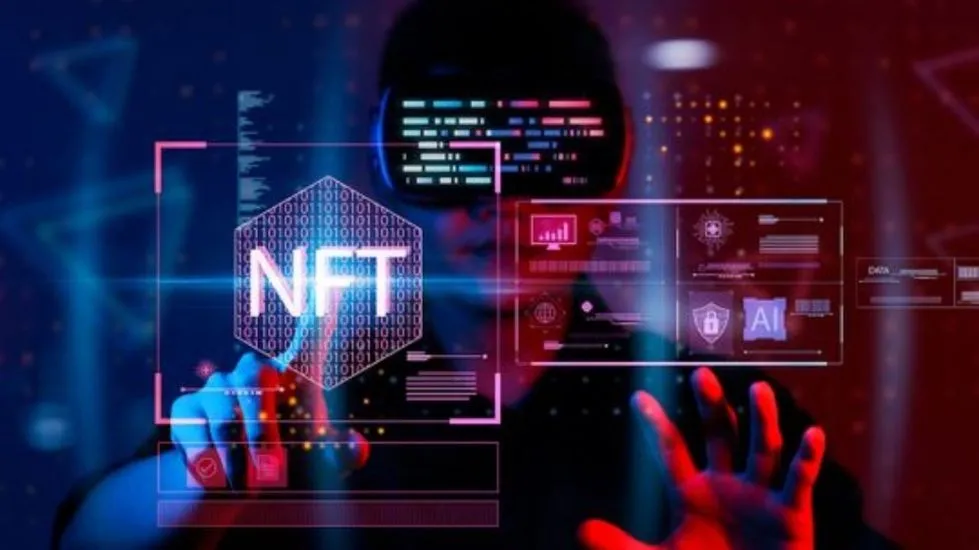
Non-fungible tokens (NFTs) demonstrate crypto currency characteristics alongside their unique features. While transactions for both are recorded on block chain ledgers, NFTs also signify ownership of a digital or real asset—anything from computer-generated material to sports trading cards, or tangible artwork.
So, should you invest in NFTs? That depends on whether the goods they represent are real, possess value, and stand to gain from being tokenized.
Pros and Cons of Investing in NFTs

Pros
-
Open to the general public
-
Convenient digital way of establishing and proving ownership of any form of asset
-
Mitigates disagreement in ownership claims
-
Own pieces of an asset that may not otherwise be fractionalized
Cons
-
Susceptible to market manipulation
-
Potential for fraud, frauds, and money laundering
-
Tradeoffs of self-managing security
-
Doesn't prevent conflicts, theft, and infringement
-
Added investment analysis of underlying asset
NFT Pros Explained
Investors have various reasons to wish to acquire and sell assets that are tokenized into NFTs. Some advantages include:
-
Allowing everyone to invest: NFT marketplaces have broad and global reach—an benefit to driving value to an NFT. Investing is accessible to anybody in the globe with a functional computer, Internet connection, and understanding of trading on NFT exchanges.
-
Memorializing portable contracts: NFTs can digitally denote via an app or website any thing that benefits from having its ownership documented. Being able to instantaneously generate, verify, and transfer what is basically an electronic contract disintermediates legal services and decreases time and costs involved with creating, managing, and retrieving physical contracts.
-
Strengthening legal evidence: NFTs are minted and housed on blockchain technology and compatible wallets. Because the blockchain is a tamper-proof ledger, ownership of an asset is easier to prove and harder to be disputed in a court of law.
-
Fractionalizing ownership: Ownership in items can be divided up efficiently through primary markets and resold quickly through secondary markets among hundreds, thousands, or millions of investors, improving liquidity to markets for those goods and opening up an alternative avenue for streamlined crowdfunding. Raising and distributing equity has been traditionally confined to fragmented communications and administrative procedures without central visibility. Note that NFTs utilized for equity financing may be categorized as securities.

NFT Cons Explained
Investing in tokenized assets using NFTs can also come with downsides, including:
-
Lack of market regulation: NFTs are an unregulated asset class with little to no investment regulations and consumer safeguards in most jurisdictions. Market manipulation tends to run wild and go under the radar, with disinformation and speculative enthusiasm leading to inflated prices, volatility, and pump-and-dump scams.
-
Fraud, scams, and crime: Anyone may fabricate claims about an NFT, conduct an NFT transaction, and build up an NFT marketplace online, allowing criminals to prey on naive buyers and sellers with ease. The distant nature of NFT transactions makes it challenging to validate actual objects believed to represent the tokenized asset and to ensure compliance with anti-money laundering (AML) legislation. Some commodities, including exquisite art and luxury goods, are already difficult to establish if they're genuine and originated from a complying source with professional competence. Supporting documents authenticating the asset's provenance, the counterparty's identity, and the marketplace's authenticity may be needed to guarantee the transaction isn't for a counterfeit duplicate, a hoax, or unlawful commerce.
-
Limited legal rights: NFTs can register ownership and give substantiating proof in a dispute, but they can't prohibit the tokenized item from being challenged and pirated completely. NFTs don't relinquish legal claims and provide patents, trademarks, and copyrights. Third parties can choose to litigate ownership, replicate the asset, and sell the replica. Electronic photos and movies, which may be copied, reproduced, and stored with a few clicks of a button, are particularly vulnerable to intellectual property theft and infringement.8
-
Securing the NFT: NFT security is mostly self-managed unless the NFT was acquired through an external party. Properly storing, unlocking, and activating public and private keys to an NFT wallet is a hard and time-consuming operation with space for error that might possibly result in losing access to hackers and technological malfunctions. NFTs also don't guarantee privacy safeguards owing to the public openness of blockchain transactions and are a typical conduit for installing malware.
-
Weighing a dual investment structure: The value of the NFT is closely connected with and retains specific differences from the value of the underlying asset. Investment fundamentals for the underlying asset and the economic features of the NFT will need to be taken into consideration in simultaneously and in combination. Intangible, digital-only things tend to have less inherent worth than physical, hard-asset ones.
Read Also: Bitcoin Ordinal NFT: Everything You Need to Know
Is an NFT a Good Investment?
The quality of NFT investment decision varies per investor. The reasons why investors transact NFTs reflect multiple purposes. Some are interested in holding the underlying asset, and others may find value in tokenizing an asset into an NFT. Some investors could just enjoy speculating on its potential to appreciate.
How Do Beginners Invest in NFTs?
Tokenized assets can be acquired publicly through NFT markets and some cryptocurrency exchanges and privately through brokers and dealers, including auction houses like as Sotheby's and Christie's. Many online NFT markets, such as OpenSea, Rarible, NBA Top Shot, Super Rare, and Nifty Gateway, require owning a certain blockchain's native token to buy an NFT—usually in ether, the cryptocurrency of the Ethereum platform.
Are NFTs Still Worth Money?
It depends on the NFT. According to OpenSea, one of the major NFT markets, hundreds of thousands of NFTs are sold everyday for gaming, collecting, and other hobbies.
The Bottom Line
Investing in NFTs offers just as many rewards as risks. In general, NFTs should be acquired if the tokenized asset has an established market and interests you—otherwise, it's doubtful the NFT will see price growth and that you'll be satisfied holding it following your purchase.
